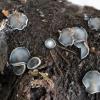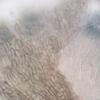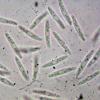
29-11-2024 21:47
Yanick BOULANGERBonjourJ'avais un deuxième échantillon moins mat

27-02-2026 17:51
 Michel Hairaud
Michel Hairaud
Bonjour, Quelqu'un peut il me donner un conseil p

27-02-2026 16:17
 Mathias Hass
Mathias Hass
Hi, Found this on Betula, rather fresh fallen twi

27-02-2026 12:56
Åge OterhalsFound on fallen cones of Pinus sylvestris in midle

27-02-2026 11:21
 Yannick Mourgues
Yannick Mourgues
Hi to all. Here is a specie that can may be relat

26-02-2026 15:00
Me mandan el material seco de Galicia, recolectada

24-02-2026 11:01
Gernot FriebesHi,found on a branch of Tilia, with conidia measur

23-02-2026 11:22
Thomas Læssøehttps://svampe.databasen.org/observations/10584971
Mollisia ID
Nicolas VAN VOOREN,
25-05-2017 18:40
 Hello.
Hello.Here is a collection of Mollisia made on a dead branch of Quercus, on soil, with Lachnum virgineum and another Mollisia species (not yet studied). A subiculum is present.
Apothecia Ø 1-2.5 mm. 5% KOH negative.
Ectal excipulum of textura angularis/subglobulosa, with cells 5–18 µm wide, becoming a textura ± prismatica on the flanks (see fig. 2), emerging in pseudo-hairs, up to 42 µm in length. Medullary excipulum of t. intricata, with hyaline hyphae.
Asci 100-110 × 7-8 µm, with crozier, pars spor. ~47-52 µm, apical ring IKI+ (bb).
Paraphyses with a long refractive VB, Ø 2.5–3.5 µm
Ascospores 17–20 (21.5) × 2.8-3 µm, OCI~3, sometimes with a central septum (but not in asci).
I didn't find any species that matches with these characters, so any help will be useful.
Hans-Otto Baral,
25-05-2017 20:27

Re : Mollisia ID
Hi Nicolas
I do not remember such a species. It reminds me a bit of Mollisia elegantior, but the much larger spores and their much higher oil content exclude this.
Did you study the brown subiculum, are the hyphae thick-walled and 4-6 µm wide?
Zotto
P.S. just detected a collection which seems to be the same, with spores 15-21 x 2.5-3.5:
E. Rubio: Pola de Somiedo, 29-IV-2017, growing on a dense felty brown subiculum on wood of Corylus avellana.
I put both in a directory named "elegantior aff.".
I do not remember such a species. It reminds me a bit of Mollisia elegantior, but the much larger spores and their much higher oil content exclude this.
Did you study the brown subiculum, are the hyphae thick-walled and 4-6 µm wide?
Zotto
P.S. just detected a collection which seems to be the same, with spores 15-21 x 2.5-3.5:
E. Rubio: Pola de Somiedo, 29-IV-2017, growing on a dense felty brown subiculum on wood of Corylus avellana.
I put both in a directory named "elegantior aff.".
Nicolas VAN VOOREN,
25-05-2017 22:22

Re : Mollisia ID
Thanks Zotto.
About the subiculum, I just noted that the wall measures up to 1 µm thick.
About the subiculum, I just noted that the wall measures up to 1 µm thick.


